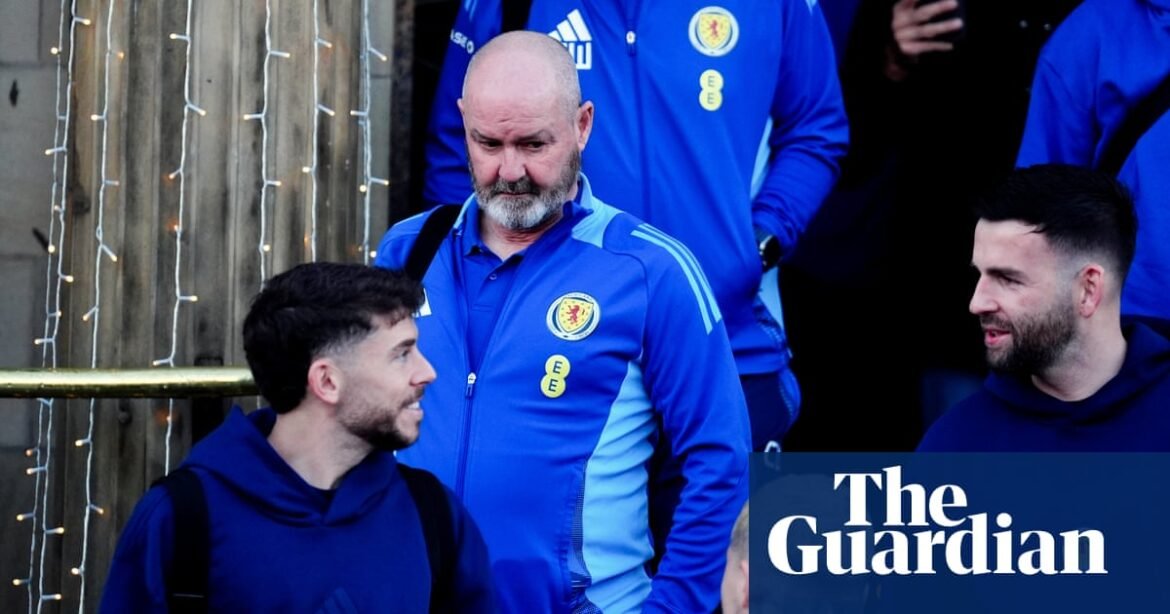It appears you can be on the brink of reaching your holy grail without many people paying sufficient attention. Scotland’s opportunity for World Cup qualification is their best since 1998, when they last performed on that scene. Theirs is also a scenario that would have been widely welcomed before a ball was kicked.
On the basis Denmark will defeat Belarus, Scotland must take at least a point from Saturday’s clash in Greece. In that event, a win against Denmark at Hampden Park on Tuesday would propel Scotland towards next summer and international football’s top table. Not since 1982 have Scotland’s men played in a World Cup having topped their qualifying group. The team that earned a crucial win against Sweden in September 1981 could afford to be without Graeme Souness. It included Alan Hansen, Kenny Dalglish and Joe Jordan.
The trouble is that the events of October 2025 linger. Scotland were unconvincing in beating Greece 3-1 and awful in their win against Belarus. Steve Clarke, typically an arch defender of his players, let rip in the dressing room during half-time and at full time in the latter game before refusing to mask his frustrations when meeting with the media. The message was simple: that Scotland were in grave danger of passing up this overdue, golden chance. This week Clarke said of his half-time show of anger: “It is something very occasionally as a manager now you can use. It is not something you can use all the time. That just felt like an appropriate moment.” Seasoned professionals quivered.
A tenure that has lasted 72 games and six years means there is obvious public tiredness towards Clarke. The way Scotland exited Euro 2024 is a moment from which the manager will not recover in the eyes of many. Clarke has the genuine possibility, though, of becoming the first Scotland manager to seal progression to three tournaments. The 62-year-old is not beyond criticism but those who deride him overplay the talent at his disposal and ignore the wilderness years before he arrived.
Clarke lacks nothing in motivation during what is inevitably his last campaign in charge. Players within the squad will privately know this is their final hope to make an impact at a World Cup. Yet Steven Naismith, Clarke’s coach, was wrong when he stated this week that players such as Andy Robertson and John McGinn “deserve” to play in the tournament. The contribution of that duo to the national side may have been huge but places such as this must be earned. A blunt reality is that too many of Scotland’s key players, including Scott McTominay, have been inconsistent in recent times. The performances and results mirror that. Scotland are a difficult team to assess but their obvious weaknesses – at goalkeeper, centre-back and centre-forward – can be offset only when Robertson, McGinn and McTominay bring their A game.
A scratch below the surface dictates why Scotland must seize the moment. The chronic lack of emerging talent will make the job of Clarke’s successor extremely tough. This squad will not be unrecognisable by the 2030 World Cup (McTominay is 28, Billy Gilmour 24 and Aaron Hickey 23). Nonetheless, a changing of the guard because players are past their best as opposed to retired looks ominous. Scotland Under-21s, thumped 6-1 in a friendly by Iceland in March, offer no hope.
Scotland have a playoff berth secured. It is another telling indicator of the national mood that nobody particularly fancies that as a prospect, whether the Scots get lucky or unlucky in the draw. If Greece and Denmark go wrong, the lead-up to March will feel grim.
after newsletter promotion
Greece should be favourable opposition. Three points from four games means their hopes are over, with doubts hovering around the future of the manager, Ivan Jovanovic. Thiago Motta has been touted as a replacement. In Glasgow, Greece’s reaction to a Scotland equaliser suggested a team with mental fragility. This is, however, a side with technically fine players, perhaps superior to Scotland’s. Clarke’s men should have beaten Denmark, instead drawing 0-0 in Copenhagen, since which point Brian Riemer’s team have rampaged through the group in establishing a goal difference Scotland will not catch.
The return fixture will prove tough to call. Scotland’s task is to make Denmark’s visit as significant as it should be. For that to happen, a reaction is required in the City of the Violet Crown.

